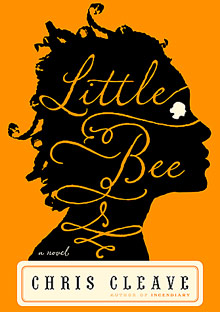Ficciones
Author: Jorge Luis Borges
Pages: 150+
Publisher's Description:
'The seventeen pieces in Ficciones demonstrate the whirlwind of Borges's genius and mirror the precision and potency of his intellect and inventiveness, his piercing irony, his skepticism, and his obsession with fantasy. Borges sends us on a journey into a compelling, bizarre, and profoundly resonant realm; we enter the fearful sphere of Pascal's abyss, the surreal and literal labyrinth of books, and the iconography of eternal return. To enter the worlds of Ficciones is to enter the mind of Jorge Luis Borges, wherein lies Heaven, Hell, and everything in between'.
My Thoughts:
The following review will only address Part One of
Ficciones, "The Garden of Forking Paths". The second part of the collection of short stories, "Artifices", will have its own review.
I personally found "The Garden of Forking Paths" to be a collection of hits and misses -- mostly misses.
Tlon, Uqbar, Orbis Tertius - Miss.
The Approach to Al-Mu'Tasim - Hit.
Pierre Menard, Author of Don Quixote - Miss.
The Circular Ruins - Hit.
The Babylon Lottery - Miss.
An Examination of the Work of Herbert Quain - Miss.
The Library of Babel - Miss.
The Garden of Forking Paths - Miss.
All the stories I didn't care for had the same problem; overly hermetic construction (obscure details/references and/or seemingly irrelevant details/references) The last three stories I listed had potential to be enjoyable, but at a certain point they all take a turn and I lose interest or become somewhat lost...Because this was such a common occurrence, I decided that confusion may have been a desired effect. That is to say that I think Borges liked playing around with puzzles, labyrinths and logic to challenge the reader. From another angle, I also think that Borges didn't intend for these short stories (these puzzles) to be easily undone...the hidden meanings are perhaps meant to be protected.
I really liked the variety Borges presents to the reader; some are detective-type stories or book reviews/commentaries and the others are total fantasy. The two short stories I did enjoy were "The Approach to Al-Mu-Tasim" and 'The Circular Ruins". The former is a review of an imaginary work by Mir Bahadur Ali, which details the story of a freethinking student of Islamic background who has killed a Hindu at a riot, and his subsequent journey to pure, spiritual clarity. Although the speaker makes it a point to compare the first and second editions of the imaginary work, I found myself not really caring too much about this part of the narrative and wishing this book were real. The latter is a short story about a sage or sorcerer, who at circular ruins creates a human being from his dreams... Both stories play with the idea of what is real and what is imagined, another concept which Borges seems to favor incorporating into his writing.
3 out of 5 stars
